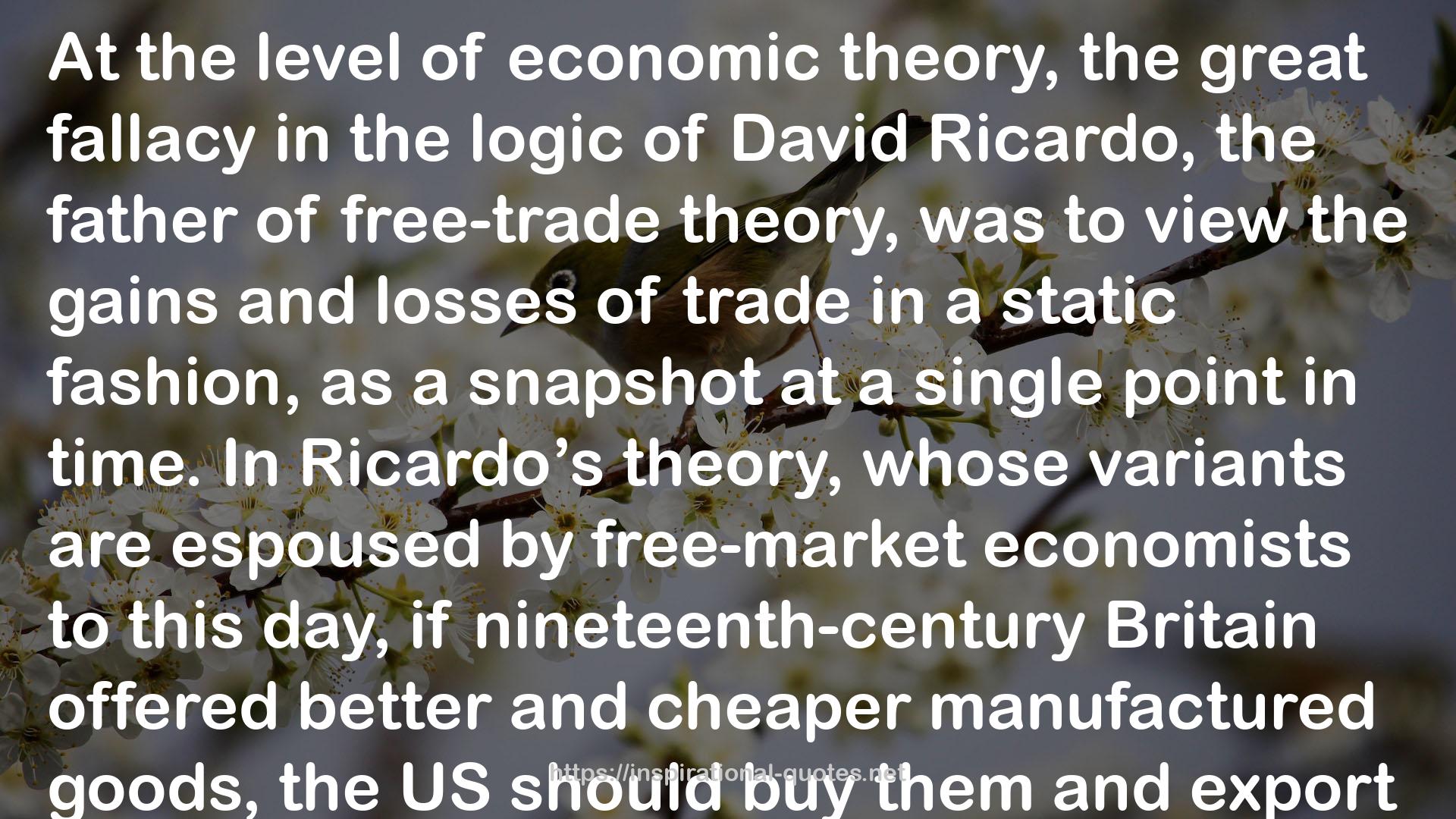" At the level of economic theory, the great fallacy in the logic of David Ricardo, the father of free-trade theory, was to view the gains and losses of trade in a static fashion, as a snapshot at a single point in time. In Ricardo’s theory, whose variants are espoused by free-market economists to this day, if nineteenth-century Britain offered better and cheaper manufactured goods, the US should buy them and export something where it could compete—say, raw cotton and lumber—even if that meant the US never developed an industrial economy. By the same token, if twentieth-century America made the best cars, machine tools, and steel, Japan and Korea should import those, and continue to export cheap toys and rice. And if other nations subsidized US industries, Americans, rather than being fearful of displacement, should accept the “gift.” What Ricardo missed—and what leaders from Alexander Hamilton and Abraham Lincoln to Teddy Roosevelt grasped (likewise statesmen in nations from Japan to Brazil), as well as dissenting economists like the German Friedrich List and the Americans Paul Krugman and Dani Rodrik—was that the dynamic gains of economic development over time far surpass the static gains at a single point in time. Economic advantage is not something bestowed by nature. Advantage can be deliberately created—an insight for which Krugman won a Nobel Prize. Policies of economic development often required an active role for the state, in violation of laissez-faire. "
Image for Quotes
